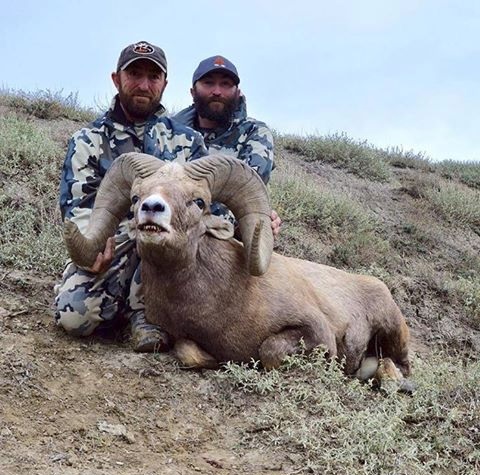
The Wild Sheep Foundation (WSF), the international leader in the conservation and restoration of wild sheep, held a successful Thinhorn Sheep Summit II in Anchorage, Alaska last week, bringing together more than 110 Dall’s sheep and Stone’s sheep wildlife managers and veterinarians, First Nations representatives, federal land and resource management experts, geneticists, resident hunters, guide/outfitter representatives, interested sportsmen and women, and other stakeholders.
Building upon the first-ever Thinhorn Sheep Summit I held three years ago in Richmond, British Columbia, this second gathering spent two days focused on evaluating challenges and opportunities for enhancing management of Dall’s and Stone’s sheep in Alaska, northern British Columbia, the Northwest Territories, and the Yukon Territory.
“With 30 generous business, organizational, and individual sponsors, the Wild Sheep Foundation was able to provide an excellent forum to discuss and prioritize management challenges faced by thinhorn sheep in these four northern jurisdictions,” said Kevin Hurley, WSF Senior Conservation Director and Thinhorn Sheep Program Lead. “Dall’s sheep and Stone’s sheep face a changing North,” added Hurley, “where human footprint, changing climates, and potential pathogen transmission from domestic sheep and goats require conservationists to step up, raise funds, take action, and work to ensure a bright future for thinhorn sheep.”
A synthesis of discussion and action items will be prepared over the next month, to be shared with summit attendees, wild sheep management agencies, and WSF Chapters and Affiliates around North America; this summary/synthesis will also be posted to WSF’s website, for public access and download.
“We brought the right mix of experts together to fully explain thinhorn sheep issues, identify needed resources, and prioritize next steps to be taken, to benefit Dall’s sheep and Stone’s sheep in the North,” added Gray N. Thornton, WSF President and CEO. “WSF and our dedicated members and partners will fully engage in the crucial work to maintain and enhance thinhorn sheep populations and their habitats,” stated Thornton.
The Wild Sheep Foundation, formerly the Foundation for North American Wild Sheep (FNAWS,) was founded in 1977 by wild sheep conservationists and enthusiasts. WSF’s Mission is to enhance wild sheep populations, promote scientific wildlife management, and educate the public and youth on sustainable use and the conservation benefits of hunting while promoting the interests of the hunter. With a membership of more than 6,700 worldwide and a Chapter and Affiliate network in North America and Europe, WSF is the premier advocate for wild sheep, other mountain wildlife, their habitat, and their conservation. Since forming in 1977, the Wild Sheep Foundation and its chapters and affiliates have raised and expended more than $110 million on conservation, education and conservation advocacy programs in North America, Europe and Asia towards its Purpose to “Put and Keep Wild Sheep On the Mountain.”™ These and other efforts have resulted in a three-fold increase in bighorn sheep populations in North America from their historic 1950-60s lows of ~25,000 to ~85,000 today. WSF, our Chapters and Affiliates and agencies partners are also working together to ensure thinhorn sheep thrive in their northern mountain realms for generations to enjoy.
